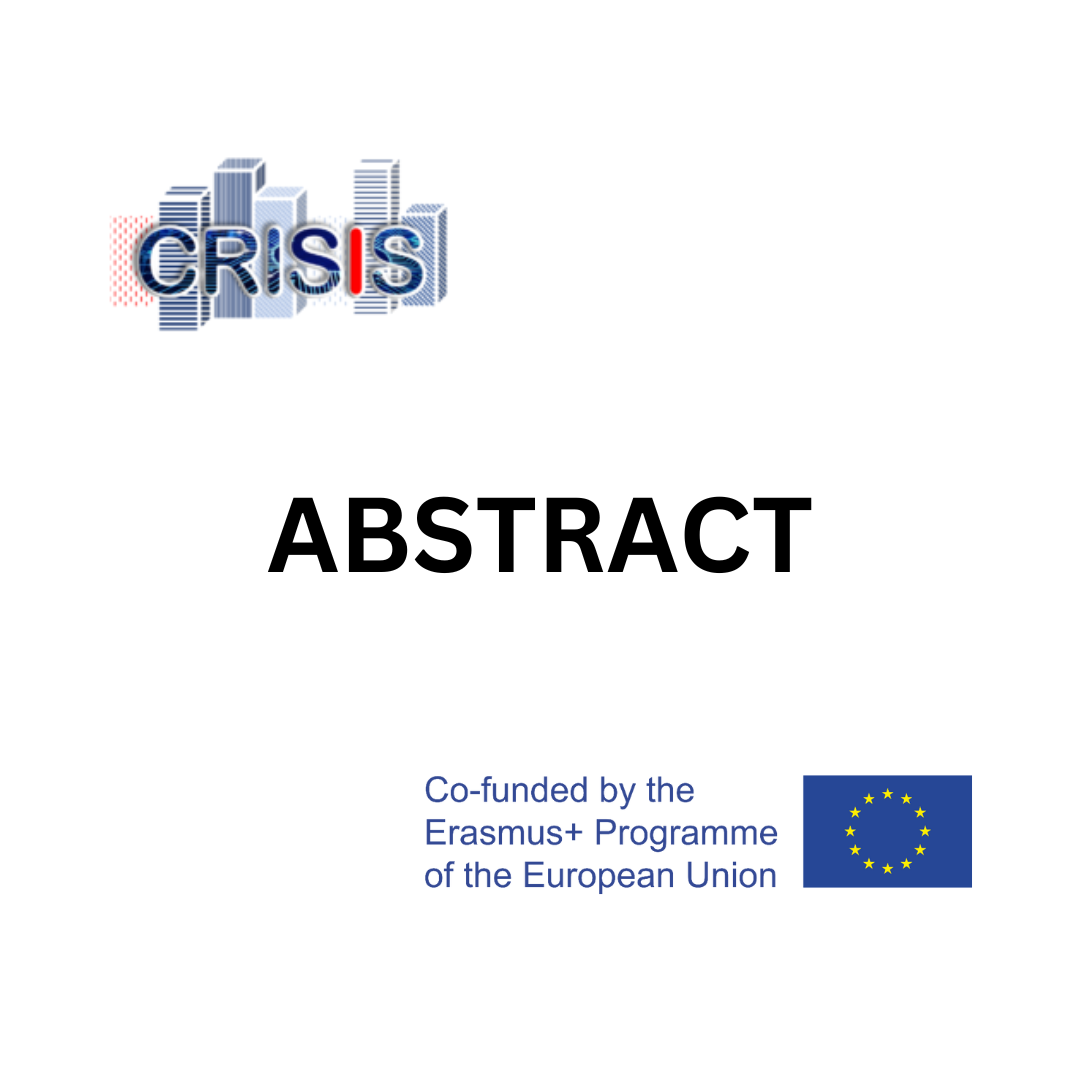Networking and Knowledge Sharing in Smart Cities: Accelerating Progress and Collaboration
P. Fitsilis ([email protected])
Introduction
Smart Cities (SC) smart are at the forefront of leveraging advanced technologies to enhance the quality of life for residents, improve resource management, and foster sustainable development. To achieve these objectives, smart cities must prioritize networking, sharing of best practices, knowledge exchange, education, and support services. By adopting a collaborative approach, smart cities can accelerate progress and overcome challenges. This paper highlights the importance of networking and knowledge sharing in smart cities, drawing insights from successful initiatives. Additionally, it explores the concept of organizing smart cities around a back-office front office model, taking inspiration from other sectors. The Intelligent Cities Challenge (ICC) initiative by the European Commission will be highlighted as a prime example.
Networking for Collaboration and Innovation
Networking is the foundation of collaboration in SCs. It enables cities to connect and share insights, experiences, and ideas. By establishing networks, cities can collaborate on joint initiatives, pool resources, and collectively address common challenges. Networking platforms facilitate the exchange of best practices, enabling cities to learn from successful implementations in other urban areas. Through networking, cities can leverage each other’s knowledge to accelerate innovation and avoid reinventing the wheel. This collaborative environment fosters creativity, enabling cities to develop innovative solutions that address complex urban issues effectively. There are numerous examples of organizations attempt to develop SCs networks.
Several successful examples of organizations that have developed smart city networks include:
- Eurocities, which is a network of over 200 cities across 38 countries that work together to improve the quality of life for residents. They promote collaboration, knowledge sharing, and the exchange of best practices among cities to address common urban challenges (https://eurocities.eu/).
- Open & Agile Smart Cities (OASC): OASC is an international network that partners with local administrations to assist them in their digital transformation journey. They focus on creating sustainable impact through minimal interoperability mechanisms, promoting the seamless sharing and re-use of digital solutions (https://oascities.org/).
- Intelligent Cities Challenge (ICC): ICC is an initiative led by the European Commission to support cities in harnessing cutting-edge technologies and improving economic competitiveness, social resilience, and the quality of life for European citizens. ICC provides tailored guidance, expert support, and networking opportunities to drive cities closer to their digital transformation goals (https://www.intelligentcitieschallenge.eu/).
- The CITYxCITY Academy is an online platform that provides education and practical knowledge related to the digital transformation of cities and communities. They offer courses on topics such as open data, citizen co-creation, and smart urban platforms, fostering networking and collaboration among participants (https://citybycity.academy/).
- Global Covenant of Mayors for Climate & Energy: This initiative connects over 10,000 cities and local governments worldwide, encouraging them to take action on climate change and implement sustainable energy solutions. It provides a platform for networking, knowledge sharing, and collaborative efforts to address climate challenges at the local level (https://eu-mayors.ec.europa.eu/en/home).
- Smart Cities Council: The Smart Cities Council is a global organization that provides resources, tools, and networking opportunities to support cities in their smart city initiatives. They focus on promoting sustainable, equitable, and technology-driven urban development (https://www.smartcitiescouncil.com/).
These organizations and initiatives exemplify the value of networking in smart cities by facilitating collaboration, knowledge exchange, and the sharing of best practices, ultimately driving the progress and transformation of cities towards a smarter and more sustainable future.
Networking plays a crucial role in the development of smart cities, fostering collaboration, knowledge sharing, and innovation among stakeholders. Examples of the value of networking are:
Sharing Best Practices and Know-How
The sharing of best practices is crucial for the success of smart cities. It allows cities to learn from each other’s experiences, benefiting from proven strategies and approaches. Networking platforms provide a space for cities to showcase their achievements and share insights into successful projects, policies, and initiatives. By sharing best practices, cities can replicate successful models and adapt them to their unique contexts, saving time, resources, and effort. Additionally, networking encourages the exchange of know-how, empowering cities with the necessary expertise to implement smart city solutions effectively. This knowledge sharing culture helps cities avoid pitfalls and make informed decisions, leading to more efficient and impactful implementations.
Education and Training
Education and training are vital components for building smart cities. Networking platforms can serve as educational hubs, providing access to online courses, webinars, and workshops. These resources empower city officials, urban planners, and stakeholders with the knowledge and skills required to navigate the complexities of smart city development. Training programs offered through networking initiatives can cover a wide range of topics, including data analytics, sustainable urban planning, IoT technologies, and citizen engagement. By investing in education and training, smart cities can build a knowledgeable workforce that drives innovation and facilitates the implementation of transformative projects.
Support Services and Collaboration Frameworks
Smart cities can benefit from support services and collaboration frameworks provided through networking initiatives. These services include expert guidance, advisory support, mentorship programs, and access to funding opportunities. Networking platforms create a conducive environment for city-to-city partnerships, where cities can collaborate on joint projects, share resources, and leverage each other’s strengths. Additionally, networking initiatives can establish frameworks for collaboration, defining standards, protocols, and interoperability mechanisms. These frameworks ensure that cities can seamlessly integrate and share data, enabling the development of integrated solutions that transcend individual city boundaries.
The Back-Office Front-Office organizational structure
Smart cities can take inspiration from other sectors such as the banking sector’s back-office front-office concept. In this model, cities can organize their operations into two distinct functions.
- The back-office comprises of the technical infrastructure, data management systems, and networking platforms that enable efficient resource allocation and information exchange.
- The front-office represents the citizen-facing services, such as smart transportation, healthcare, and public safety. By adopting this model, smart cities can optimize their operations, ensuring seamless integration between the back-office functions and front-office services, thereby enhancing citizen experiences and overall efficiency.
The organization of the back office, which encompasses the technical infrastructure and data management systems of smart cities, is often easier to achieve through a network of cities due to several reasons.
- A network of cities allows for the sharing of resources and expertise. By connecting cities together, they can pool their knowledge, experiences, and resources related to back-office functions. This collaboration enables cities to leverage each other’s strengths and learn from best practices, resulting in more efficient and effective back-office operations.
- Networking facilitates the exchange of data and information. Cities can establish data-sharing protocols and interoperability mechanisms, enabling seamless communication and integration of back-office systems. This shared data infrastructure allows cities to access and analyze valuable information for better decision-making, resource allocation, and performance optimization.
- A network of cities provides a broader scope for innovation and cost savings. By collaborating on the organization of the back office, cities can jointly develop and implement technological solutions, reducing duplication of efforts and associated expenses. Networking allows cities to leverage economies of scale, negotiate better procurement deals, and adopt shared platforms or frameworks, leading to cost efficiencies and accelerated innovation.
- Lastly, networking within a city network fosters a supportive environment. Cities can learn from each other’s successes and challenges, collaborate on problem-solving, and provide peer-to-peer support. This collaborative atmosphere promotes knowledge exchange, capacity building, and continuous improvement, facilitating the organization and management of the back-office functions.
The need to organize support functions at the network level
Organizing support functions at the network level in smart cities offers several advantages and addresses common challenges faced by individual cities. By centralizing and coordinating support services within the network, cities can experience the following additional benefits:
- Resource Optimization: Support functions, such as advisory services, funding opportunities, and capacity-building programs, can be more effectively and efficiently utilized when organized at the network level. By pooling resources, cities can leverage economies of scale, negotiate better terms, and achieve cost savings. This allows for the maximization of limited resources and the allocation of funds and support where they are most needed.
- Consistency and Standardization: By organizing support functions at the network level, cities can establish consistent practices, standards, and guidelines. This ensures a more cohesive approach to smart city development, facilitating interoperability and compatibility between different cities and their initiatives. Consistency and standardization also enhance efficiency, enable seamless integration, and simplify the process of scaling up successful projects across the network.
- Influence and Advocacy: A network-level organization of support functions provides cities with a unified voice and increased influence when advocating for their needs and priorities at regional, national, or international levels. It strengthens the collective impact of cities, making them more compelling stakeholders in policy discussions, funding allocations, and decision-making processes related to smart city initiatives.
One of the best examples of network level support initiatives is the Intelligent Cities Challenge (ICC). The Intelligent Cities Challenge (ICC) initiative, spearheaded by the European Commission, serves as an exemplary networking platform that focuses on accelerating the digital transformation of cities. Through the ICC, cities gain access to tailored guidance, expert support, advisory networks, and capacity-building tools. The initiative emphasizes knowledge sharing, collaboration, and the exchange of best practices among cities. By participating in the ICC, cities can leverage networking opportunities, learn from peers, and access resources that drive their smart city ambitions forward.
Conclusion
Networking, sharing of best practices, knowledge exchange, education, and support services are integral to the success of smart cities. By prioritizing collaboration and adopting a networking mindset, cities can accelerate progress, foster innovation, and overcome challenges collectively. Drawing inspiration from the banking sector’s back-office front-office concept, smart cities can optimize their operations and enhance citizen services. Initiatives like the Intelligent Cities Challenge (ICC) exemplify the value of networking platforms that facilitate collaboration, support services, and the exchange of knowledge. By embracing these principles, smart cities can realize their full potential and create sustainable, inclusive, and technologically advanced urban environments.
Links
- Eurocities: Website – https://eurocities.eu/
- Open & Agile Smart Cities (OASC): Website – https://oascities.org/
- Intelligent Cities Challenge (ICC): Website – https://intelligentcitieschallenge.eu/
- Smart Cities Network (SCN): Website – https://www.smartcitiesnetwork.net/
- Covenant of Mayors – Europe https://eu-mayors.ec.europa.eu/en/home
- CITYxCITY Academy: https://citybycity.academy/



